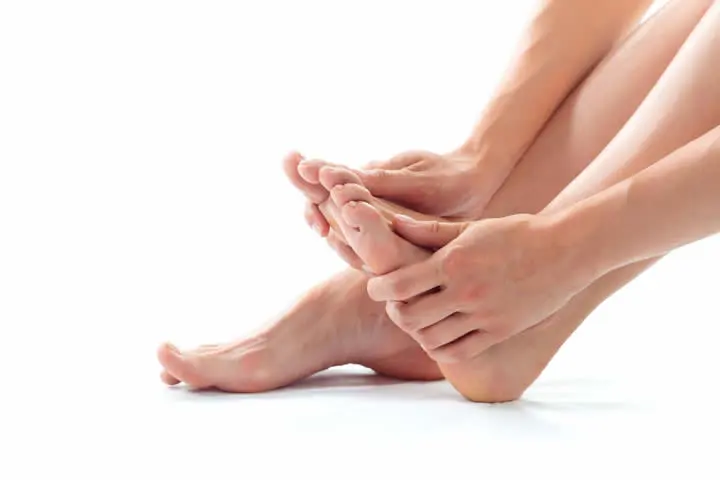What is Tinea?
Tinea is a type of fungal infection that affects the skin or nails. It is caused by a group of fungi called dermatophytes, which feed on keratin, a protein found in the outer layer of the skin, hair and nails. Tinea can affect different parts of the body and cause various symptoms, such as redness, itching, scaling, cracking and blistering.

What are the signs and symptoms of Tinea?
The signs and symptoms of tinea vary depending on the type and location of the infection.
Some common signs and symptoms are:
- Redness, itching, scaling, cracking and blistering of the skin or nails .
- Round or oval patches with raised edges and clear centers on the body .
- Red, scaly and itchy rashes that may have blisters or pus-filled bumps on the groin, inner thighs and buttocks .
- Hair loss, scaling, redness and sometimes swollen lymph nodes on the scalp, eyebrows and eyelashes .
- Thickening, discoloration, brittleness and crumbling of the fingernails or toenails .
What are some of the causes of Tinea?
Some factors that can trigger the overgrowth of these fungi and cause tinea are:
- Hot, humid weather
- Oily skin
- Hormonal changes
- Weakened immune system
- Direct contact with an infected person or animal
- Sharing personal items with an infected person or animal
- Contact with infected soil
What treatments are available at the dermatologist for Tinea?
Some possible treatments for tinea that are available at the dermatologist are:
- Topical antifungal medications: These are creams, lotions, gels or shampoos that are applied to the affected skin or nails to kill the fungus or stop its growth. Some examples are ketoconazole, ciclopirox, selenium sulfide and terbinafine.
- Oral antifungal medications: These are pills or capsules that are swallowed to treat more severe or widespread cases of tinea. Some examples are fluconazole and itraconazole.
- Medicated cleansers: These are products that can be used once or twice a month to prevent tinea from recurring, especially in hot and humid climates.
The choice of treatment depends on several factors, such as the type and location of the infection, the severity and extent of the symptoms, the patient’s medical history and preferences, and the potential side effects of the medications.

What are some common places where the Tinea fungus thrives and grows?
Some common places where the Tinea fungus thrives and grows are:
- The feet, especially between the toes and on the soles. This is called tinea pedis or athlete’s foot.
- The groin, inner thighs and buttocks. This is called tinea cruris or jock itch.
- The scalp, eyebrows and eyelashes. This is called tinea capitis or scalp ringworm.
- The body, especially the trunk, arms and legs. This is called tinea corporis or ringworm.
- The fingernails or toenails. This is called tinea unguium or nail fungus.
FAQ About Tinea
Is tinea contagious?
Yes, tinea is contagious and can spread from person to person through direct contact or sharing personal items, such as towels, clothing, shoes or combs. It can also spread from animals to humans, especially from cats and dogs that have ringworm.
Is tinea dangerous?
Tinea is not usually dangerous, but it can cause discomfort, embarrassment or self-consciousness due to its appearance and symptoms. Tinea can also lead to complications such as bacterial infections, scarring or permanent hair loss if left untreated or if the infection is severe.
Is tinea the same as ringworm?
Yes, tinea is also known as ringworm, because it can cause red patches on the skin in the shape of rings. But it is not caused by worms, it is caused by fungi.
Is tinea the same as athlete’s foot?
Yes, tinea pedis is also known as athlete’s foot, because it often affects people who sweat a lot or wear closed shoes. It affects the feet, especially between the toes and on the soles.
Is there a dermatologist near me in Boise City that offers treatment for Tinea?
Yes. At our Boise City dermatology office we offer treatment for Tinea to patients from Boise City and the surrounding area. Contact our office today to schedule an appointment.

